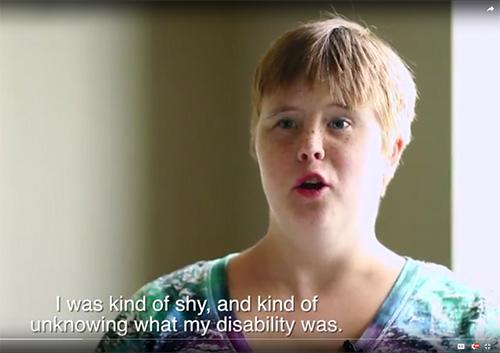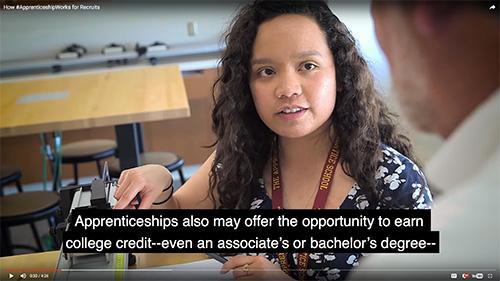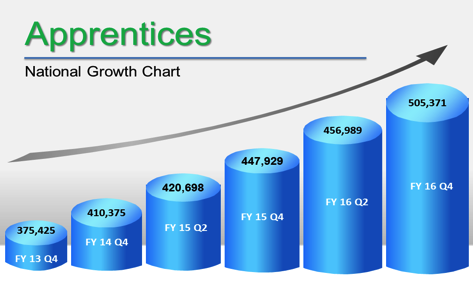RAISE E-News, Vol. 3, No. 2
APRIL 2017
|

Welcome to the RAISE e-news letter, designed to identify and share resources that the Rehabilitation Services Administration Parent Training and Information Centers (RSA-PTI) can use and share with families.
Executive Editor: Peg Kinsell
Visit our Website:
|
About RAISE
RAISE, the National Resources for Access, Independence, Self-Advocacy and Employment is a user-centered technical assistance center that understands the needs and assets of the RSA-PTIs, coordinates efforts with the TA provided by PTI centers and involves RSA-PTIs as key advisors and partners in all product and service development and delivery.
RAISE is funded by the US Department of Education to provide technical assistance to, and coordination of, the 7 PTI centers (RSA-PTIs). It represents collaboration between the nation's two Parent Technical Assistance Centers (PTAC) and the seven Regional PTACs.
Find your Parent Technical Assistance Center (PTAC)
|
|
 |
"One important key to success is self-confidence.
An important key to self-confidence is preparation."
- Tennis player, Arthur Ashe
|

We think your students will love this video series from Wisconsin Youth First.
These young adults share first-person stories of transition, self advocacy, and coming of age. They tell it like it is.
|
RESOURCES:
Apprenticeships
RAISE loves the video series produced by the Office of Disability Employment Policy (English and Spanish versions,
with captioning and audio introduced versions). Their #ApprenticeshipWorks Series launched last fall and offers perspective from those seeking an apprenticeship, as well as employers and mentors who are sponsoring them.

Apprenticeship is an important strategy for job seekers looking for experience that can lead to a career. These programs are not limited to traditional trades - youth can find apprenticeships in high-growth industries like information technology and healthcare.
The #ApprenticeshipWorks Video Series features apprentices (recruits) both with and without disabilities along with their apprenticeship sponsors talking about how apprenticeship works for them and how it can work for other job seekers and businesses across the country.
When you are done watching, check out
https://www.dol.gov/featured/apprenticeship
for a rich bank of resources on apprenticeships, including an employer tool kit and a sponsor database.
Did You Know: The number of registered apprenticeships is on the rise? Nationwide, more than 206,000 people entered an apprenticeship program in 2016, and more than 1,700 NEW apprenticeship programs were established in 2016.
 Source: NJ Department of Labor, ApprentishipUSA
|
 MAKING YOUR POINT: MAKING YOUR POINT:
Helping Students Deal with "Difficult People" In The Workplace
Sometimes, helping students LAND the job is only part of the challenge; helping them LOVE the job, especially when they work with a coworker who is difficult, can be another challenge altogether.
"Difficult people" come in all shapes and sizes, but the problems they create in the workplace have two things in common: first, the situation rarely gets better on its own, and second, a screaming match or tears will not make it any better.
If you are working with a student who is facing this challenge, you might offer these tips:
- Look at yourself first - That's right. Ask yourself, "Is this person REALLY the problem, or am I overreacting?" "Is this a pattern for me?" "Have I experienced difficulty with the same type of person or actions?" "Is this person pushing my buttons?"
- Talk to someone you trust - Brainstorm your feelings. When you feel like you are the object of an attack, it is often difficult to objectively assess your options. Anger, pain, humiliation, fear, and concern about making the situation worse are legitimate emotions.
- Don't whine - No one wants a reputation for being a whiner or a troublemaker. If you talk to coworkers and ask for advice, be ready to take action. The goal in talking to others is not to complain, it is to generate ideas.
- Practice before you talk to your coworker - If you plan to talk to your offending coworker, decide what you plan to say. Keep your focus on the person's behavior, not the person. For example, you might say: "When you take credit for work we do together, it is unfair to me," instead of, "You are a liar."
- Keep things private - Do not confront the person in front of others. Keep the conversation private unless/until you need to involve your boss.
- Take some notes - Sometimes interpersonal problems can affect your productivity, and your progress. If this happens, make some notes about the situation - when and where it happened, what happened, and how your coworker's behavior affects the bottom line.
- Go up the ladder - If talking to your coworker did not improve the situation, make a plan to address the issue. Perhaps involve your coworker's boss. A good boss is likely to bring your difficult coworker and his supervisor into a three or four-way discussion at this point. Expect to participate in follow-up discussions over time.
- Stay Safe - Sometimes, workplace conflicts feel unsafe. If you are asked to do something that is dangerous, or are at risk of physical or emotional injury, get help right away.
|

TOOLS THAT WORK:
Introduction to Inclusive Talent Acquisition
We came across this free online course for employers to help them attract and support a diverse workforce. Developed and sponsored by Perkins School for the Blind, the three-hour self-paced program is actionable, with concrete steps for implementation. It also is a networking site, with more than 1,700 like-minded professional and HR leaders. Those who complete the program have the option of purchasing a verified certificate to highlight the skills and knowledge they gained.
|
 A CLOSER LOOK: A CLOSER LOOK:
Cara Liebowitz: Activist
This month, RAISE takes a "closer look" at one of our RAISE Activists, a group of independent advocates for the RAISE Center.
Cara Liebowitz is a writer pursuing a master's degree in disability studies from the CUNY School of Professional Studies in Manhattan, NY. She was one of the original youth founders of the I Am Norm campaign, a national campaign aimed at promoting inclusion in schools and the community. She also works with DREAM (Disability Rights, Education, Activism and Mentoring), creating and expanding resources for higher education students with disabilities. Cara's writing has been published in Empowering Leadership: A Systems Change Guide for Autistic College Students and Those With Other Disabilities, and the Criptiques anthology.
|
 Upcoming Events Upcoming Events
National Technical Assistance Center on Transition
(NTACT) Capacity Building Institute
May 16 - 18, 2017, in Kansas City, MO
National Association of Workforce Development Professionals (NAWDP) Annual Conference
May 21 - 24, 2017, in New Orleans, LA
The 2017 Association of People Supporting Employment First (APSE) Conference
June 19 - 22, 2017, in Portland, OR
|
|